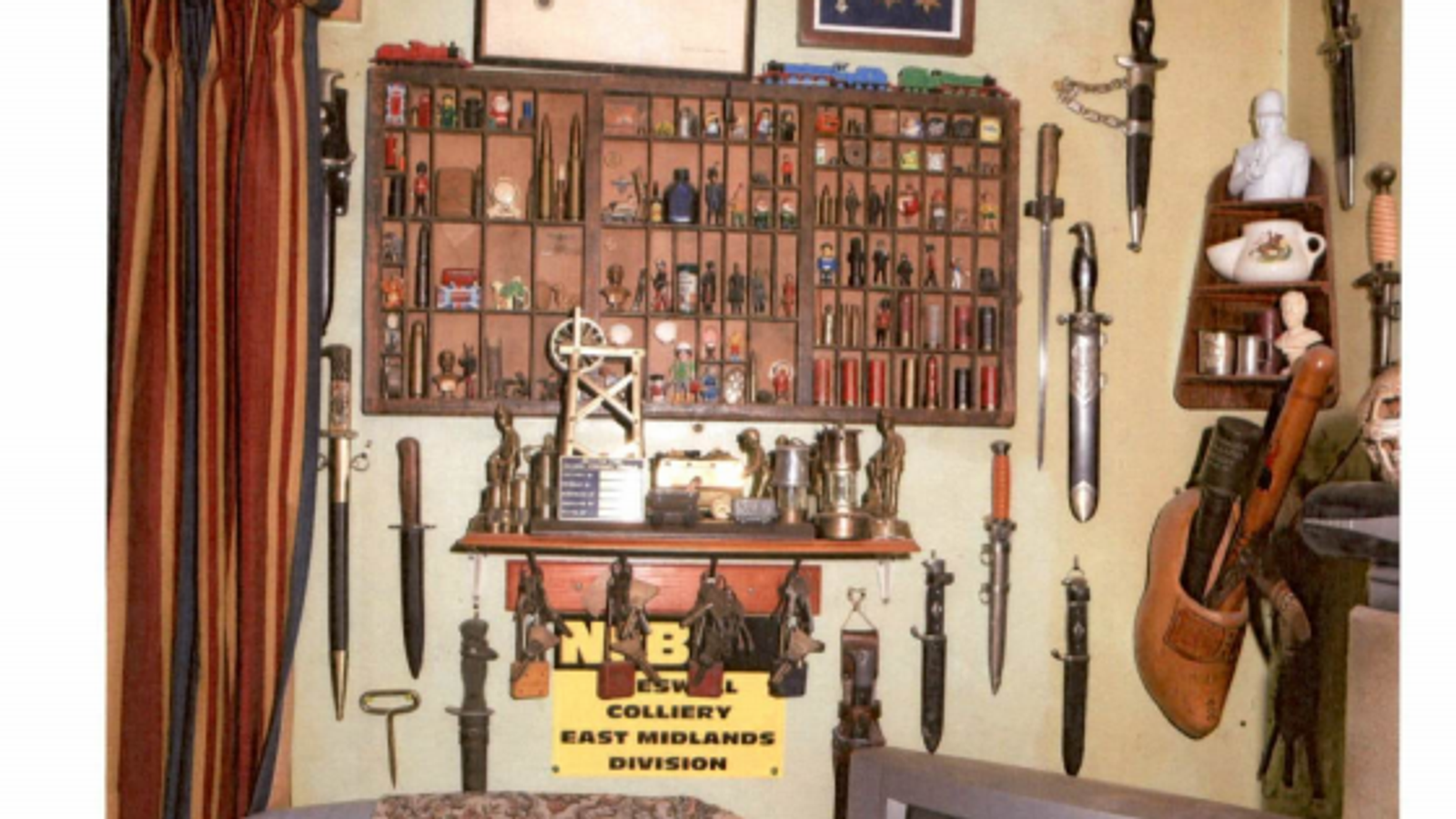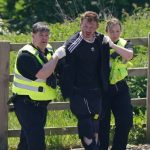A man who stockpiled neo-Nazi memorabilia has been found guilty of terrorism offences after downloading a bomb-making manual and guides to knife fighting.
Nicholas Brock, 53, had a flag showing an eagle and swastika on the wall of his bedroom and a Nazi badge in a chest of drawers next to his bed in the three-bedroomed mid-terraced house in Maidenhead, Berkshire, where he lived with his mother.
His home was raided in connection with an unrelated investigation, for which he was never charged, and further material was found on a laptop, phone and hard drive, Kingston Crown Court was told.
Police noted that Brock had tattoos of prominent Nazis from the 1930s and 1940s, along with runes and other symbols adopted by neo-Nazis and white supremacists.
A tattoo on his shoulder featured the Totenkopf skull and cross bones adopted by the Nazi SS which has since been used by the British neo-Nazi group Combat 18.
The same symbol was shown on a plaque on the bedroom wall.
Emma Gargitter, prosecuting, said the room was “filled to the brim with an eclectic mix of items, amongst them, items demonstrating an interest in extreme right wing and white supremacist ideology”.
The room also included flyers for the National Front, with a letter to Mr Brock, addressed “Dear Patriot, Many thanks for your enquiry and interest in the National Front”.
There were books about the American white supremacist group the Ku Klux Klan (KKK), a copy of Hitler’s Mein Kampf, and another about Combat 18, while under the bed was a “certificate of recognition” from the Klan.
Among the material on his electronic devices was a photograph of Brock posing in his bedroom, wearing a balaclava, and holding a large firearm, in front of the swastika flag, the prosecutor said.
Another photograph showed Brock in front of the confederate flag, wearing a cap with the words “Make America Great Again”, the slogan of the campaign for Donald Trump.
A short video apparently shot in Brock’s bedroom showed a Nazi flag being waved and a KKK figurine.
A video in three parts showed unedited footage filmed by Brenton Tarrant as he shot 51 people dead at two mosques in Christchurch, New Zealand, in March 2019.
Other videos included KKK cross burnings, and one of the decapitation of a blindfolded man.
His hard drive included a folder labelled “Army-Military-Manuals” which contained two manuals for an AK47 assault rifle, and others for US army pistol training, and explosives, along with a copy of a document known as the “al Qaeda manual”.
The documents were said to include three that were useful for terrorists.
Brock had images showing a number of anti-Muslim and other racist memes, Ms Gargitter said.
Among the material on his electronic devices was a video called Hail Combat 18, which featured men in balaclavas wearing sweatshirts with the words “Blood and Honour” loading and using firearms, one of whom warned: “The war is coming.”
Other folders were labelled: “KKK”, “Enoch Powell”, “Knuckle Dusters”, and “Runes” and a number had names referring to “WW2” and the Nazis.
He had used his computer to search for the National Front, National Action – a proscribed right-wing terrorist group – the KKK and “racist photos”.
On a file called “tattoo ideas” he had the logo of the banned right-wing terrorist group National Action.
Interviewed by the police, Brock claimed he was “not interested in rubbish like this” and was a “World War One, World War Two, the Falklands and the Gulf” military collector.
He claimed that two men would sometimes come to play Play Station 2 games with him in his bedroom in the evenings. and one of them might have downloaded the material while he was out of the room “making a cup of tea or a sandwich”.
Police found one of the men, who turned out to be an old schoolfriend, was confined to a wheelchair and had been almost bed-bound since 2014 as a result of a car accident.
He had never been to Brock’s home, had seen him only once since they left school and last spoke to him in 2017.
The excuse was “designed to send the police on a wild goose chase so that he could avoid having to answer detailed questions about how the material really got on to his hard drive, and why he had it,” Ms Gargitter said.
He eventually claimed he had been referring to a second man with the same name but that was “an absurd attempt to wriggle out of the fact that his original lie had been exposed”, the prosecutor said.
Ms Gargitter said Brock had “no legitimate reason for possessing such information. He is not, for example, an academic, or a self-defence specialist”.
She continued: “These are not everyday items or collectable memorabilia, but publications which contain detailed advice on how to create explosive devices, on how to kill and how to maim.
“They may of course be of use to someone planning any kind of violent attack; and they would certainly be of use to someone planning a terrorist attack.”
Brock was found guilty of three charges of possessing information useful for terrorism and will be sentenced in May.






















